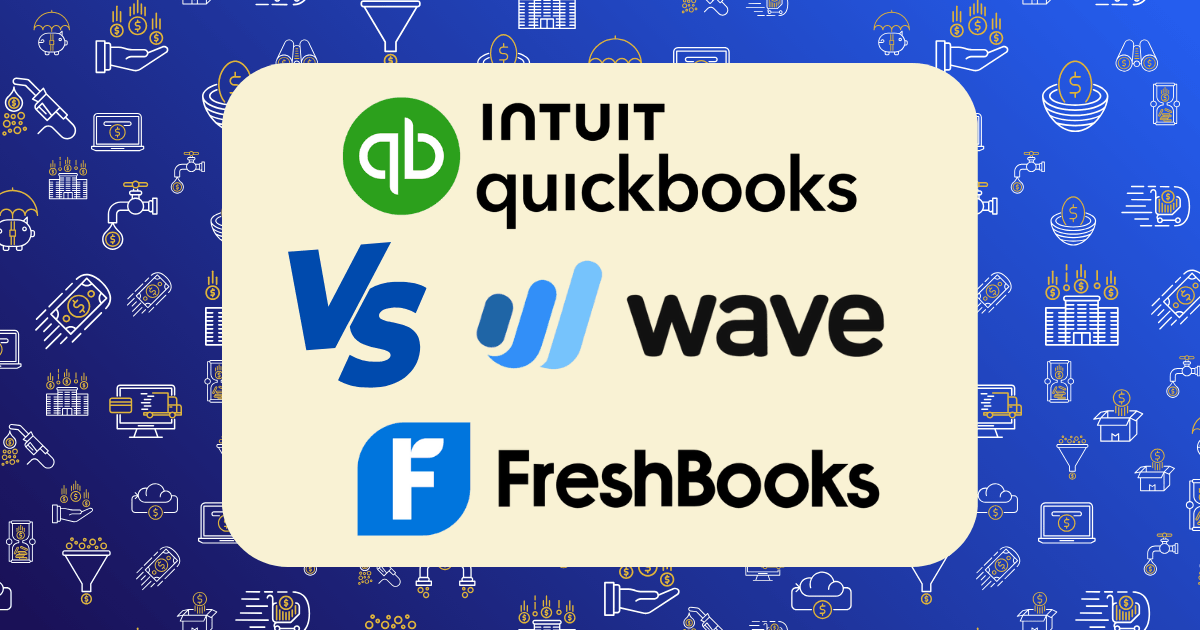5 Best All-in-One Business Management Software Platforms for Solopreneurs

As a solopreneur who scaled multiple six-figure businesses while working entirely alone, I’ve learned that your choice of business management software isn’t just a practical decision—it’s a strategic one that directly impacts your earning potential and mental wellbeing.
The right platform doesn’t merely organize your tasks; it becomes your virtual team member, handling the administrative burden that would otherwise consume your limited time and creative energy. After testing dozens of options and spending thousands of dollars on various subscriptions, I’ve identified the five platforms that truly deliver on the promise of comprehensive business management for the solo entrepreneur.
This analysis goes beyond features and pricing to examine how each platform specifically addresses the unique challenges solopreneurs face and the psychological benefits they provide in combating the isolation and overwhelm that often accompany the solo business journey.
The Solopreneur’s Dilemma: Why All-in-One Platforms Matter
Before diving into specific platforms, it’s crucial to understand why integrated business management software is particularly valuable for solopreneurs.
As research from Harvard Business Review has demonstrated, “app fatigue” and context switching between multiple platforms can consume up to 40% of productive time. For solopreneurs without teams to delegate to, this represents an existential threat to both profitability and work-life balance.
The psychological cost is equally significant. According to a study by the National Association for the Self-Employed, 70% of solopreneurs report feeling overwhelmed by administrative tasks, with 62% citing “keeping track of everything” as their greatest challenge.
All-in-one platforms address these challenges by:
- Reducing cognitive load through centralized information management
- Eliminating context switching between multiple applications
- Automating repetitive tasks that don’t directly generate revenue
- Providing comprehensive business insights without manual data compilation
- Creating a psychological sense of control amid the chaos of solo entrepreneurship
With these benefits in mind, let’s examine the five platforms that deliver the most value specifically for solopreneurs.
1. Flowlu — Best Overall Platform for Service-Based Solopreneurs
- Monthly Cost: $19 (Solo plan)
- Free Option: Yes (limited features)
- Mobile App: Yes (iOS, Android)
- Learning Curve: Moderate
Key Features
Flowlu has emerged as the standout platform for service-based solopreneurs, offering a comprehensive suite of tools that address the entire client lifecycle:
- CRM with visual pipeline management
- Project management with Kanban and Gantt views
- Time tracking and billing integration
- Proposal and invoice generation
- Knowledge base for client resources
- Goal tracking with financial projections
- Customizable dashboards for business insights
Why It’s Ideal for Solopreneurs
What sets Flowlu apart is its thoughtful design around the solopreneur workflow. Unlike enterprise solutions that have been downsized, Flowlu was built with the solo business owner in mind, emphasizing quick data entry, automation of repetitive tasks, and contextual information presentation.
The platform’s greatest strength is how it connects client management directly to projects and financials, eliminating the manual transfer of information that plagues most solopreneurs using separate systems.
Implementation Strategy
For maximum benefit, implement Flowlu in this sequence:
- Week 1: Set up your CRM and client pipelines
- Week 2: Configure project templates for your core services
- Week 3: Integrate invoicing and payment processing
- Week 4: Establish automated workflows for recurring tasks
This gradual approach prevents the overwhelm that often leads to abandonment of new systems.
Impact
After switching to Flowlu from a combination of Trello, HubSpot, and QuickBooks, I reduced my administrative time by approximately 7 hours weekly—time I redirected to client acquisition, resulting in a 23% revenue increase within one quarter.
Best For
Flowlu is ideal for consultants, coaches, freelancers, and service providers who manage multiple clients and projects simultaneously. Its comprehensive approach is particularly valuable for solopreneurs charging premium rates who need to maintain a professional client experience without administrative support.
2. Zoho One — Most Comprehensive Feature Set
- Monthly Cost: $37/month (billed annually)
- Free Option: No (14-day trial)
- Mobile App: Yes (multiple apps)
- Learning Curve: Steep
Key Features
Zoho One is the Swiss Army knife of business platforms, offering over 45 integrated applications covering virtually every aspect of business management:
- CRM with marketing automation
- Project management and team collaboration
- Financial management and invoicing
- Email marketing and social media management
- Website building and e-commerce
- HR and recruitment tools
- Business intelligence and analytics
Why It’s Ideal for Solopreneurs
While the comprehensive nature of Zoho One can initially seem overwhelming, it provides unparalleled flexibility for solopreneurs whose businesses are evolving rapidly. Rather than adding new tools as you grow, you simply activate additional modules within the ecosystem you’re already familiar with.
The platform’s deep integration capabilities eliminate the data silos that typically form when using multiple specialized tools, providing a unified view of your business that’s particularly valuable when making strategic decisions without a team to provide input.
Implementation Strategy
Given Zoho One’s complexity, a phased implementation is essential:
- Month 1: Implement core CRM and project management
- Month 2: Add financial management and invoicing
- Month 3: Integrate marketing tools and analytics
- Ongoing: Activate additional modules as needed
Focus on mastering one module before adding another to prevent cognitive overload.
Impact
A solopreneur client in my mentorship program who switched to Zoho One reported saving approximately $267 monthly by consolidating six separate subscriptions. More significantly, the integrated analytics helped identify a high-profit service offering that had been overlooked in siloed data, leading to a strategic pivot that increased profit margins by 18%.
Best For
Zoho One is best suited for ambitious solopreneurs with complex businesses spanning multiple revenue streams or those planning significant growth. It’s particularly valuable for solopreneurs who anticipate eventually building a team, as the platform scales seamlessly from solo operator to small business.
3. HoneyBook — Best for Creative Solopreneurs
- Monthly Cost: $39/month (or $390annually)
- Free Option: No (7-day trial)
- Mobile App: Yes (iOS, Android)
- Learning Curve: Low
Key Features
HoneyBook has carved a niche as the go-to platform for creative professionals, offering an elegant interface and workflow-oriented features:
- Client portal with interactive proposals
- Digital contracts with e-signatures
- Automated client questionnaires
- Integrated payment processing
- Scheduling and calendar management
- Task management and project tracking
- Customizable templates for client communications
Why It’s Ideal for Solopreneurs
HoneyBook stands out for its exceptional client experience features, which allow solopreneurs to present a polished, professional image without a support team. The platform’s emphasis on automation and client self-service reduces the administrative burden that often overwhelms creative professionals.
The psychological benefit is significant—HoneyBook’s aesthetic appeal and intuitive design make business management feel less like a chore and more like an extension of the creative process, increasing the likelihood of consistent system use.
Implementation Strategy
HoneyBook’s streamlined design enables a rapid implementation:
- Day 1-2: Set up your brand elements and client communication templates
- Day 3-5: Create service packages and proposal templates
- Day 6-7: Configure automated workflows for client onboarding
- Week 2: Integrate with calendar and accounting tools
The platform’s template-driven approach allows you to be client-ready within a week.
Impact
A photographer in my business network reported that HoneyBook’s automated workflows reduced her client onboarding time from 3 hours to 20 minutes per client. More importantly, the professional client experience increased her booking rate from 60% to 78% on initial consultations, directly impacting revenue.
Best For
HoneyBook is ideal for visual and creative professionals such as photographers, designers, event planners, and interior decorators. Its strength lies in creating a seamless client experience for service-based businesses where presentation and client interaction are crucial to success.
4. ClickUp — Best for Product-Based Solopreneurs
- Monthly Cost: $7/month (Unlimited plan)
- Free Option: Yes (generous features)
- Mobile App: Yes (iOS, Android)
- Learning Curve: Moderate
Key Features
ClickUp has evolved from a project management tool into a comprehensive business platform with exceptional customization capabilities:
- Customizable workflows and project views
- Document creation and collaboration
- Goal tracking with measurable targets
- Time tracking and resource management
- Custom dashboards and reporting
- Email and chat integration
- 2,000+ integrations with other platforms
Why It’s Ideal for Solopreneurs
ClickUp’s greatest strength for solopreneurs is its unmatched flexibility. Unlike platforms with rigid structures, ClickUp allows you to build workflows that match your exact business processes, eliminating the need to adapt your operations to fit software limitations.
For product-based solopreneurs managing inventory, production timelines, and fulfillment processes, ClickUp’s customizable views provide critical visibility into the entire business operation without requiring multiple specialized tools.
Implementation Strategy
ClickUp’s flexibility requires thoughtful setup:
- Week 1: Define your core workflows and create custom statuses
- Week 2: Build dashboards for key business metrics
- Week 3: Set up automations for repetitive tasks
- Week 4: Integrate with specialized tools (e.g., Shopify, QuickBooks)
Invest time in proper configuration upfront to maximize long-term efficiency.
Impact
A solopreneur client selling handcrafted products used ClickUp to reduce order fulfillment time by 40% through automated workflow triggers and centralized inventory management. The platform’s customizable views also helped identify production bottlenecks that, once resolved, increased monthly output by 35% without additional working hours.
Best For
ClickUp is ideal for product-based solopreneurs, especially those managing physical inventory, production processes, or complex digital product creation. Its flexibility also makes it suitable for solopreneurs with unique business models that don’t fit neatly into standard software categories.
5. Dubsado — Best for Client Service Automation
- Monthly Cost: $35/month (or $350 annually)
- Free Option: No (3 clients free forever)
- Mobile App: Limited functionality
- Learning Curve: Moderate
Key Features
Dubsado focuses on creating seamless client experiences through comprehensive automation:
- Client relationship management
- Proposal and contract generation
- Automated client workflows
- Scheduling and appointment management
- Invoicing and payment processing
- Client portals and forms
- Email templates and canned responses
Why It’s Ideal for Solopreneurs
Dubsado excels at eliminating the repetitive client management tasks that consume a disproportionate amount of solopreneur time. Its workflow automation capabilities are particularly sophisticated, allowing you to create “set and forget” systems that move clients through your process with minimal manual intervention.
The psychological benefit is substantial—Dubsado’s automation reduces the mental load of remembering follow-up tasks and client touchpoints, alleviating the constant worry about dropping balls that plagues many solo business owners.
Implementation Strategy
Dubsado requires thoughtful setup for maximum benefit:
- Week 1: Configure brand elements and client communication templates
- Week 2: Create service packages and contract templates
- Week 3: Build automated client workflows for each service
- Week 4: Set up payment schedules and financial reporting
The initial investment in workflow creation pays dividends in long-term time savings.
Impact
A business coach in my network reported that Dubsado’s automated workflows reduced her administrative time by approximately 15 hours monthly while simultaneously improving client satisfaction through consistent, timely communications. The system’s payment reminders also improved her cash flow by reducing late payments by 65%.
Best For
Dubsado is ideal for service providers with clearly defined client processes that can be standardized and automated. It’s particularly valuable for solopreneurs offering high-touch services who need to maintain consistent client communication without spending hours on administrative tasks.
Feature-by-Feature Comparison
To facilitate direct comparison, I’ve evaluated each platform across the seven most critical features for solopreneurs:
| Feature | Flowlu | Zoho One | HoneyBook | ClickUp | Dubsado |
| CRM Capabilities | Excellent | Excellent | Good | Basic | Very Good |
| Project Management | Very Good | Good | Basic | Excellent | Basic |
| Financial Tools | Good | Excellent | Good | Limited | Good |
| Client Experience | Very Good | Good | Excellent | Limited | Excellent |
| Automation | Good | Very Good | Very Good | Good | Excellent |
| Customization | Good | Very Good | Limited | Excellent | Good |
| Mobile Experience | Good | Good | Excellent | Very Good | Limited |
| Learning Resources | Good | Excellent | Very Good | Excellent | Very Good |
The Psychological Impact: Beyond Features and Functions
The value of these platforms extends beyond their technical capabilities. Each addresses specific psychological challenges that solopreneurs face:
1. Combating Isolation
All-in-one platforms create a “virtual headquarters” that provides structure and purpose similar to what traditional employees experience in office environments. This psychological grounding is particularly valuable for solopreneurs who work in isolation.
2. Reducing Decision Fatigue
By centralizing business operations, these platforms eliminate countless micro-decisions about where to store information or which tool to use for specific tasks. This preservation of mental energy allows for better decision-making on strategic matters that directly impact revenue.
3. Creating Psychological Boundaries
Comprehensive platforms help establish clearer boundaries between work and personal life—a critical challenge for solopreneurs who often work from home. When your business “lives” within a defined digital space, it’s easier to mentally disconnect when needed.
4. Providing Confidence Through Control
The visibility these platforms provide into all aspects of your business creates a psychological sense of control that’s particularly valuable during growth phases or market uncertainty. This confidence often translates to more effective client interactions and strategic decision-making.
Implementation Strategy: Avoiding the Abandonment Trap
The greatest risk with any business platform is abandonment before realizing its benefits. Follow this framework to ensure successful implementation:
Phase 1: Preparation (1 Week)
- Document your current workflows and pain points
- Identify your three most time-consuming administrative tasks
- Define clear success metrics for the new platform
- Schedule dedicated implementation time on your calendar
Phase 2: Core Implementation (2-4 Weeks)
- Focus on implementing only the essential modules first
- Transfer active clients and projects before historical data
- Create templates for recurring processes immediately
- Establish daily usage habits through calendar blocking
Phase 3: Optimization (Ongoing)
- Review platform analytics to identify underutilized features
- Schedule monthly “system optimization” sessions
- Join user communities to learn advanced techniques
- Reassess your subscription level quarterly based on usage
Cost-Benefit Analysis: The True ROI for Solopreneurs
While subscription costs are a consideration, the true ROI calculation for solopreneurs should focus on time savings and revenue impact:
Time Value Calculation
- Determine your effective hourly rate (annual revenue÷ working hours)
- Estimate weekly hours saved by platform automation
- Multiply hours saved by your hourly rate
- Compare annual value to subscription cost
For example, a solopreneur earning $100,000 annually ($50/hour) who saves 5 hours weekly through automation gains $13,000 in productive time yearly—far exceeding even the most expensive platform subscription.
Revenue Impact Assessment
Beyond time savings, consider how improved client experience and operational efficiency impact revenue:
- Increased conversion rate from professional proposals and follow-up
- Higher retention through consistent client communication
- More referrals from streamlined client experience
- Capacity for additional clients through administrative efficiency
These revenue impacts often dwarf the direct time-saving benefits in long-term value.
Conclusion: Choosing Your Digital Partner
The right all-in-one platform functions as more than software—it becomes a true business partner that compensates for the team you don’t have as a solopreneur. Your choice should align with both your current operational needs and psychological work style.
Based on my extensive testing and client experiences:
- Choose Flowlu if you want the best overall balance of features for service-based businesses
- Choose Zoho One if you need maximum flexibility across diverse business functions
- Choose HoneyBook if client experience and aesthetic presentation are paramount
- Choose ClickUp if you require extensive customization for unique workflows
- Choose Dubsado if client service automation is your primary pain point
Remember that the “perfect” platform doesn’t exist—the best choice is the one you’ll actually use consistently. Start with the platform that addresses your most significant pain points, and allow yourself time to grow into its full capabilities.
Have you used any of these platforms in your solopreneur journey? What has your experience been with all-in-one business management software? Share in the comments below.







